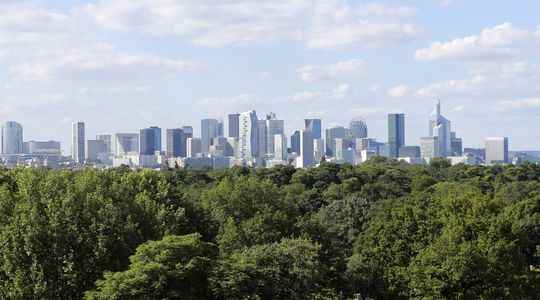The conclusion is scathing. “There is no strategic and temporal coherence between the action of the State and that of the territorial levels, nor coordination of planning between the regions”, one can read in the report of the High Council for le climat (HCC) published on Wednesday 29 June. Sometimes included in abstract national plans, sometimes developed without consultation by the localities, the measures taken to respond to climate issues lack coordination, points out the document.
Communities are, however, essential links to the success of the ecological transition. Among them, the regions have essential maps. They can, first, use their general skills to show zeal. By setting the main political guidelines in terms of agriculture, training, development and transport. This last sector alone is responsible for 31% of greenhouse gas emissions in France. And it does not stop there. From 2023, a new responsibility will be entrusted to it: the regions will be in charge of allocating part of the aid from the Common Agricultural Policy (CAP). An essential tool for greening agriculture, which represents 19% of French CO2 emissions.
Even more directly, since 2015 regional authorities have been piloting the Regional Planning, Sustainable Development and Territorial Equality Scheme (SRADDET). This acronym, little known to the general public, defines the objectives to be put in place to make actions consistent throughout the region. They concern the prevention of waste, the protection of biodiversity, the fight against the artificialization of soils, etc.
“There is everything to review every time”
Problem: these plans provide for strategies that are spread over ten years, but successive laws, like the climate law, make them obsolete very quickly. “These plans and documents serve, for example, as a basis for the design of the Local Urban Plan (PLU). I am therefore completely in the dark concerning the system of building land for the next few years. There is everything to review each time “, illustrates by way of example Constance de Pelichy, mayor of La Ferté-Saint-Aubin in the Loiret and co-president of the Planning, urban planning, habitat, housing commission of the Association of Mayors of France. A lot of time and money invested therefore, for few concrete results. And the permanent need for local elected representatives to adapt to national policies.
There is also the question of interregional coherence but also of certain areas for which concerted control of their management is necessary: the coasts, forests or mountainous areas, such as the Alps or the Pyrenees. Overall, this question is insufficiently thought out according to the HCC report. A striking example, that of the development of renewable energies, which is done independently and sometimes generates absurdities: “My municipality is carrying out a photovoltaic park project of around twenty hectares. I discovered, by chance, that the department , owner of land adjoining our park, also carried out a project of this type, as did Orléans.Finally, there will be three photovoltaic park projects within a radius of 2 km and even a fourth 10 km from here. Everyone is piloting their own project in their own corner”, notes the mayor of La Ferté-Saint-Aubin.
4 solar power plants within a radius of 10 km
In addition to this lack of dialogue on the use of space, there are environmental regulations which, by imposing themselves in a few specific places, are in reality upsetting all areas of life. “Several large cities, such as Rennes, Nantes or Grenoble, must define low emission zones, where traffic rules are very restrictive. Generally, households in these cities receive aid. But those in neighboring municipalities, although affected, do not receive nothing. There is not always consultation, which can generate a feeling of injustice”, analyzes Oriane Cebile, environmental adviser at Intermunicipalities of France.
A lack of coordination which is partly explained by a decrease in the staff dedicated to this issue. Between 2014 and 2021, operators helping local authorities in the field of climate change decreased by 1.3% per year according to the report of the High Council for the Climate. Members of the National Forestry Office, Meteo-France and the Water Agency, they actively participate in the harmonization of national practices in the territories. Their absence could prove to be very costly for local authorities, forced to frequently review their plans and run after expert assessments integrating a global vision.
Beyond that, it participates ultimately to delay the achievement of climate objectives: if the strategies of the territories correspond to the objectives of reducing CO2 emissions in France for 2030, the HCC report, on the other hand, notes a stall by 2050.
